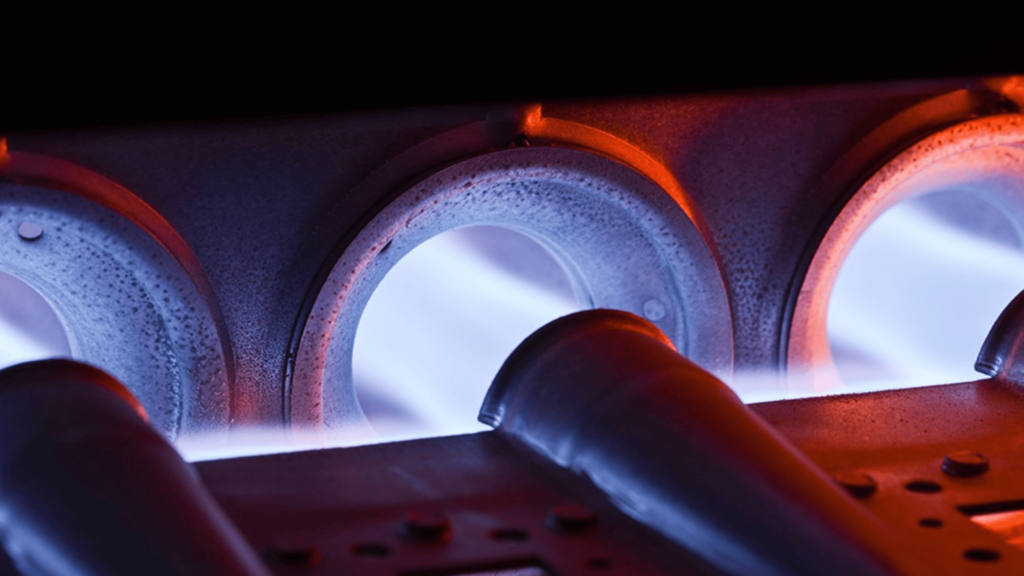You know HVAC system maintenance is essential. It's the secret to keeping your home comfortable…
Heat pump vs Gas Furnace
Opting for a heat pump vs a gas furnace can offer various advantages, considering that heat pumps provide heating and cooling functions. Heat pumps are more energy-efficient and cost-effective than furnaces in optimal conditions. However, it’s crucial to note that under unfavorable conditions, heat pumps may be less efficient as heaters compared to gas furnaces.
Both furnaces and heat pumps warm our homes, but they’re different in how they do it. They have unique features like how good they are at heating, how much energy they use, how often they need fixing, how much space they take up, and how much money they cost.
The key determinant in making the right choice is assessing whether your climate conditions are conducive to a heat pump or if a gas furnace is necessary. Additionally, it’s essential to factor in associated costs such as equipment, installation, repairs, and operational expenses. Considerations like fuel sources, maintenance requirements, life expectancies, and unit performance also play a vital role. By thoroughly evaluating these factors, you can decide whether a heat pump or gas furnace is better for your home.
Choosing Between a Heat Pump vs a Gas Furnace

Where you live is essential when choosing between heat pumps and furnaces. Heat pumps work well in places with mild winters, like the south and near the coast. On the other hand, furnaces are better for icy businesses up north. In the U.S., most furnaces use natural gas, but some use propane, oil, or electricity. Picking the right heating system for your weather can make your home cozy and save you money. Learn about the differences between furnaces and heat pumps, the advantages of electric versus gas heating, energy efficiency, and more!
Installation
Installing heat pumps versus gas furnaces hinges on the existing setup and compatibility factors. Furnace installation tends to be more extensive and costly, mainly when a gas line connection is necessary. Conversely, heat pump installation becomes more comprehensive and expensive if the house lacks wiring for supplemental heating.
For an air-source heat pump, installation costs may be slightly lower than a gas furnace if ductwork is already in place. However, the final price is influenced by the size and complexity of the heat pump. Ground-source heat pump installation is notably expensive, involving drilling and labor-intensive processes.
Energy Efficiency
Powered by electricity, heat pumps can achieve up to 300% efficiency, requiring only one unit of electricity to move three units of heat. In comparison, some new furnaces boast up to 98% efficiency, signifying that only 2% of the fuel doesn’t generate heat.
The weather post-installation significantly impacts the efficiency of both heat pumps and furnaces. Heat pumps prove more efficient and cost-effective in regions with mild winters (40 to 60 degrees Fahrenheit). Conversely, furnaces excel in efficiency and cost-effectiveness in colder areas with temperatures below freezing. Natural gas, being a cheaper fuel than electricity, provides warmer heat.
Maintenance
Furnaces generally demand less maintenance than heat pumps due to their seasonal usage. Furnace maintenance involves periodic filter changes and occasional cleaning of the flame sensor. Heat pumps require continuous debris clearing around the unit, monthly filter changes, and occasional coil cleaning. Annual professional inspections and tune-ups, ranging from $75 to $200, are recommended for furnaces and heat pumps.
While repair costs are comparable, heat pumps may experience slightly higher repair expenses. Furnaces are less prone to repairs due to having fewer mechanical parts.
Performance
Gas furnaces generate heat directly, while heat pumps transfer heat. Gas furnaces are more effective in colder regions, providing warmer heat unaffected by outdoor temperatures.
Heat pumps face challenges in transferring heat when temperatures drop below freezing. Supplementary heating systems can compensate, but they are energy-intensive and costly. Heat pumps are preferable in temperate regions where gas furnace heat might be hot. Furnaces, however, produce dry air that can lead to skin dryness, while heat pumps circulate naturally humid air. Heat pumps also offer the advantage of providing cooling in the summer.
Operational noise differs, with heat pumps generally being noisier than furnaces. The compressor and air handler produce regular clicking and knocking sounds in heat pumps. At the same time, furnaces typically emit a whooshing sound during initial burner ignition, often going unnoticed due to their placement in basements or away from living areas.
Making the Right Call for Your Home Heat Pump vs Gas Furnace
Determining the ideal heating solution for your home involves carefully considering your region’s climate. The choice between a gas furnace and a heat pump hinges on factors influenced by your location. Heat pumps transfer heat from the outdoor air, making outside temperatures critical. Conversely, gas furnaces generate heat from the fuel, with the heat’s temperature remaining unaffected by the outdoor climate.
Heat pumps emerge as the preferred choice in regions with winters averaging 40 – 60 degrees Fahrenheit, falling within climate zones 1 – 3, according to the U.S. Department of Energy’s climate zone map. These systems prove most efficient and cost-effective in locations with mild to moderate climates. The electricity rates in your area are another pivotal consideration, given that heat pumps rely on electricity for power.
On the other hand, gas furnaces take precedence for regions experiencing cold winters with temperatures dropping below freezing and falling within climate zones 4 – 7. Furnaces operate independently of outdoor temperatures when generating heat, producing hotter air and heating homes more rapidly than heat pumps. Additionally, the cost-effectiveness of natural gas, a cheaper energy source than electricity, enhances the appeal of gas furnaces in these colder climates.
Tailoring Your Home’s Heating Solution
In the furnace vs. heat pump debate, there is no one-size-fits-all answer. The right choice depends on various factors, including climate, energy efficiency goals, and budget. Furnaces provide powerful heating in cold temperatures, while heat pumps offer year-round comfort and energy efficiency in moderate temperatures. Consider your specific needs and consult our team to make an informed decision.

Contact us today, and take the first step towards coziness by calling us today! Your comfort is our priority; call us to schedule service today.
